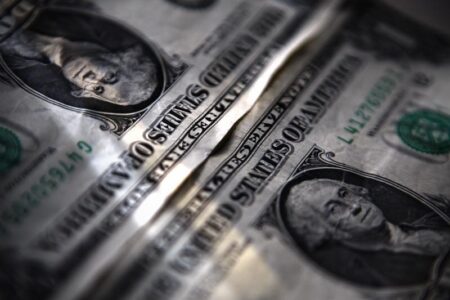By Kevin Buckland
TOKYO (Reuters) – The dollar held near a two-week high against the yen after posting its biggest daily gain in four weeks against its major peers as strong U.S. economic data eased recession fears.
The dollar was particularly strong against the Japanese currency thanks to higher Treasury yields as traders scaled back bets that the Federal Reserve will have to ease monetary policy aggressively next month.
Risk-sensitive currencies such as the pound performed strongly as an improvement in the economic outlook spurred higher stock prices.
The U.S. dollar, which measures the greenback’s value against six major currencies including the yen, the British pound and the euro, was little changed at 103.20 after rising 0.41% overnight, its biggest gain since July 18.
The dollar eased slightly to 149.11 yen, but remained close to Thursday’s high of 149.40, a level last seen on Aug. 2.
The Commerce Department said retail sales rose 1.0% last month, beating expectations for a 0.3% gain. Separate figures showed 227,000 Americans filed for unemployment benefits last week, below the 235,000 expected.
Traders believe the Fed will cut interest rates on Sept. 18, but they debate the size of the cut. The odds are now at 25% for a large 50 basis point cut, down from 36% the day before, according to CME Group’s (NASDAQ:) FedWatch interest rate monitor.
Surprisingly weak monthly payrolls data at the start of the month pushed the odds of a larger cut to 71%.
“Growth is in better shape and the consensus is once again supporting the ‘soft landing’ thesis,” said Chris Weston, head of research at Pepperstone, pointing to 150 yen per dollar as the next level to watch for the currency pair.
“While there are always risks that could come into play, there is little in the data flow right now that could really disrupt sentiment in the near term.”
Sterling edged up slightly to $1.2859, building on a 0.21% gain overnight. The British currency got an extra boost from strong GDP figures on Thursday.
The euro was steady at $1.0973, after falling 0.36% in the previous session.
The risk-sensitive Australian dollar was steady at $0.66105 after rising 0.2% the previous day after data showed a much bigger-than-expected rise in jobs.
